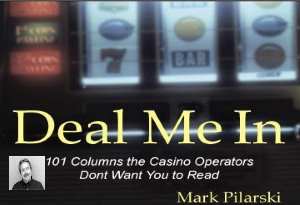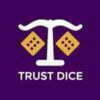Tis the season for football. Could you please explain how points on a football game actually work. I have never been able to get a definitive answer to this question. Edward S.
It doesn’t take endless hours in a Lazy Boy chair to know that football games are often played between teams of unequal abilities. To induce wagers, a sports book offers a “betting line”- a handicapping method that makes bets on either team equally attractive. The Cleveland Browns may be dreadful, but with 15 points, all of a sudden a Brown’s bet looks like a future soul mate in a bar after seven beers. A sure winner!
Far too many gamblers believe that the betting line indicates that the Green Bay Packers are 15 points better than the Cleveland Browns. Not necessarily so. The line is set at 15 points so that the betting public will wager equal amounts on the Packers and the Browns. The Lords of Chance want equal wagering, because they can’t make money betting head-to-head against the gamblers, like they do in other casino games. They make their money by charging a commission, or vigorous, on every bet. When betting a typical football game, you have to wager $1.10 to win a $1. The casino gets its cut on the $0.10 vig.
Sports books never get a perfect balance, and they occasionally feel the sting of hot gamblers. When all the cumulative wagers do not even out, and more bets are placed on the eventual winning team, the house could end up paying more than it took in. Also, Edward, with unbalanced bookkeeping and the favorites winning week after week, a sports book’s profitability could be zapped for an entire season, as happened a few years ago.
Individual sports books do not set the point spreads (line) that you see in your local newspaper or on the boards in a casino. It is more cost effective for them to buy their lines from a bookmaker whose function is to figure how the public will be betting.
Expect the betting line to fluctuate right up until game time in order to attract more bets on the team that has been under-bet so far. By the start of the game, if the betting line has accomplished its intended purpose, the house can be assured of making money no matter which team wins.
Years back, I remember a casino paying double instead of 3-2 for blackjack if the player had a blackjack in spades. I don’t see much of that wager anymore. Could it possibly be because the casino was losing too much money with this added bonus? Cliff N.
The bonus for a blackjack actually has some historical significance. The game of 21 got its name blackjack because in the early days players were rewarded extra if they got an Ace and Jack of spades as their first two cards.
In a single deck game of blackjack, there are 1,326 possible two-card combinations, and paying the customer a tad bit more than 3-2 for a suited blackjack in spades won’t harm the house’s bottom line. It’s probably that someone upstairs in marketing came up with the short-term promotion you saw and then pulled it once it had run its course.
As for most casino side bets, if they are free, like the one you described, fine. But most side bets cost you money because of the typically high house advantage and should be avoided.
Gambling thought of the week: If a man who cannot count finds a four-leaf clover, is he lucky? -Stanislaw J. Lec




















